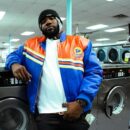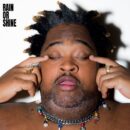As the years go on I am really narrowing down my voice in the world. Deciding what's important, what I want to leave behind as a legacy, and finding a complacency in the simplest places. This is something that has led me to continually finding my own thoughts coincidentally coinciding with Sean's music. This past week I received a phone call from the front man of Atmosphere so we could talk a little more about life, love, stress and setbacks.
UHH (Isaac): Yeah, my dad's from the north side of Chicago, so it was a rough childhood [living in Green Bay as a Bears fan]. But if you can start off to just tell some of our other readers that maybe aren't so familiar with you who you are and what you represent.
Slug: Whoa... I'm Sean, I represent my kids. I don't even know how to answer that... what I represent. Yeah, I represent me and my kids, my wife. That's about it. That's really about it at this point.
UHH (Isaac): That's dope. That makes sense with the dadmosphere. That's who you are, man. So I wanted to start off by talking about the tour you're currently on, the Wherever tour, following the release of the Whenever album. It's kind of awesome that you guys started in Minneapolis, you're going to end in St. Paul. What is the difference between playing shows in your hometown? How does it differ when you're playing in front of fans that maybe don't get to see you as often?
Slug: In all honesty, it used to be different, now it's about the same, because we don't play the Twin Cities very often either. The only time I really play there is if we're on tour, or Soundset. And Soundset doesn't count. That's a soft play, because chances are you're not there to see us. You're there for the whole event or to see Cardi B or whoever the hell's playing. So nowadays, playing First Ave or the Palace Theater, it feels much like playing the Novo in Los Angeles or Webster Hall in New York. The excitement and the anticipation is that of an event, whereas back in the day, we used to play so often that it wasn't so much an event as it was a party.
There is good and bad to everything in life, but I tend to prefer the style of show that Atmosphere has now. I recently had a disagreement with a friend about celebrating Christmas. She begins Christmas the day after Thanksgiving and has a month and a half celebration while I prefer to wait til the week of Christmas to begin celebrating. For me it builds more anticipation and turns the week into a fun filled event. Speaking of anticipation, I couldn't let Slug slide without talking about the surprise drop of Whenever.
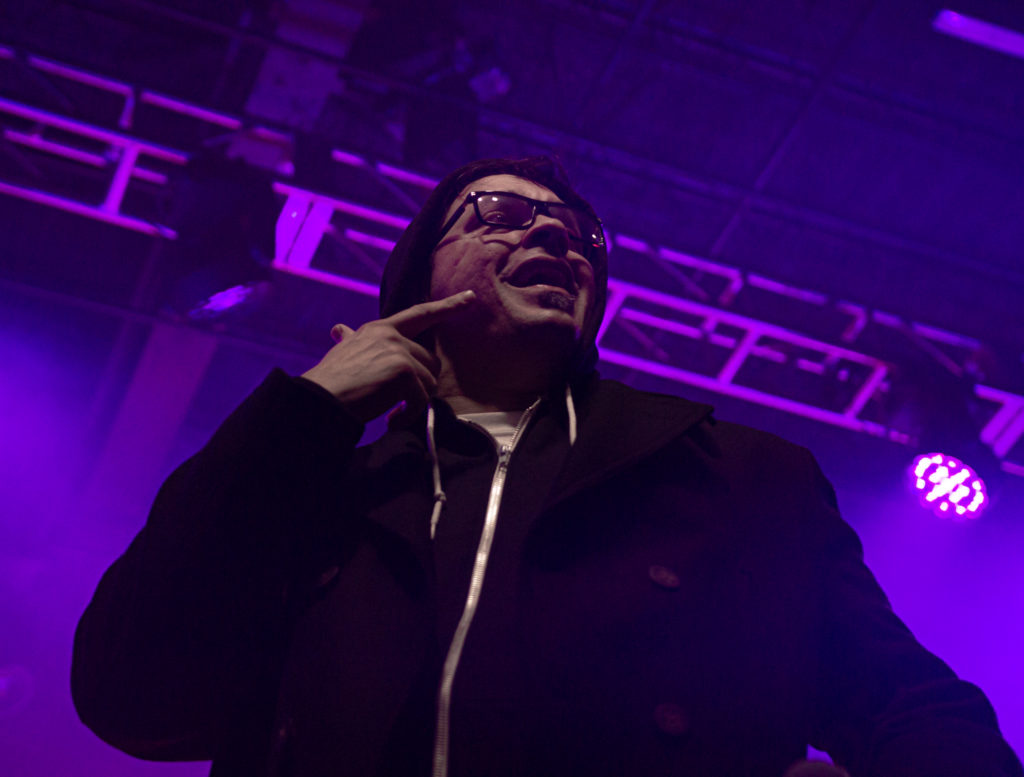
UHH (Isaac): With this latest project though, with Whenever, it was kind of a surprise album, and it came on the heels of Brother Ali's surprise release. Was this something that you guys wanted to do? Is it something that the label wants to do going forward, dropping these like this? Do you like that idea of the press buildup and the promotion, or do you like the idea of just dropping an album when you're ready to drop it?
Slug: In all honesty, the least that I have to talk to you guys the better. I'm not huge on press buildup. I don't like all that shit. I really just want to make music and perform music, and then in my off time I want to paint. So all the extra work, I'm not a huge fan of it, but the label desires it. So, I'm a company guy. I try to make sure that I appease everybody that I work with. But in fairness, I don't know how the label could love the surprise drop. It's an artist friendly label, they go along with it when you push for it.
Sean went on to talk about the big upside to him and Ali dropping at the same time (out of chance and not planned by the label) before explaining why he personally loves the idea of a surprise drop.
Slug: Personally, I love it. [The} thing about the buildup is that it allows everybody to end up having some sort of idea of what the album's going to be, and the album's never going to be what you think it's going to be. I feel like the surprise drop eliminates that expectation part, and it allows people to hear it fresh and to really get their gauge on what they really think of it as opposed to making them wait three months for them to decide that it's going to suck before they even get to hear it, or that it's going to be awesome before they even get to hear it. This way, they hear it and they can really just go off of their first reaction and not have some sort of early expectation of what they think it might turn out to be.
I have always been a fan of the surprise album. As someone that works in the media, I don't like to hype things up. We live in a sensationalized world that people make split second decisions before getting the whole story. Letting people create their own story before they even hear the artists work lays the groundwork for not reaching your expectations.
UHH (Isaac): Going along with that, I recently read an interview you did with DJ Booth where you talked about liking being noticed versus being patted on the back. You really don't care if they love it or hate it, it's more the idea that they're seeing it. It's a sentiment that I had talked with Murs a while back about whether or not he'd do a MursDay! 2, and he basically said the sheer lack of interest in that project was the reason why he doesn't think he's ever going to do a MursDay! 2. Has there been anything like a project or a song that the reception that you got really was not what you were expecting, and has it pushed you to either want to try it again or just not want to perform it at all?
Slug: […] There's a few songs in my past that I would get negative reactions ... Negative's the wrong way to put it. There's been times when the people's reaction to a song has intimidated me, and made me go "I don't know that I appreciate the relationship between me and that song and the audience and that song." Sometimes people misinterpret something. I don't mind so much, because I think that people's interpretations are as important if not more important than mine, but sometimes it can make me a little uncomfortable.
This was something that I agree and disagree with Slug on. People definitely are allowed to make the song into whatever they want (further down he explains why), but where I differ is that we can't turn our interpretation of a song into the artists meaning. Three people can look at the same painting and come away with a different feeling based on what is going on in their life, but those are your own, just as the artists intentions were their own.
Slug: There's a song on our very, very, very first album, and in the very early years of touring, I learned right away how to navigate this, but there's a song that was a hidden track on Overcast, it was called Primer. People on the internet had started calling it Trailer Park Chicken, because I'd never really publicly announced the title, it was a hidden track. [It] was a narrative. You have this guy who's a misogynist, whatever whatever, and the narrative sounds like the guy's being super fucking mean to his girl, but really in my head, it was supposed to be this is the girl, and how she articulates her asshole boyfriend. [...It] was such a miscalculation on my part to think that anybody would fucking interpret this how I meant it. When I saw how young, predominately white males were responding to this song with their aggression and celebrating the narrative, I was like "Fuck this song." It's gone. I've never, ever, ever returned to it.
Sean would go on to explain how he has grown into songs, grown past songs, and had songs come full circle, but in the same sense the fan interpretation was really important to him as well. One song in particular had made him see just how fluent his work could be.
Slug: Another song, Fuck You Lucy, which was about my relationship with alcohol, people were using it as their fucking breakup song, and I was like "Fuck." So for a while, I took a break from that shit too, but I've been able to return to that, because I've been able to find my own understanding of the breakup song, if that makes sense. A way that I can actually pull myself out of it and see how that song in particular was more [than just what I had created]... People were finding grace inside it, and they were finding ways to use that song to articulate feelings other than just aggression. So I've been able to work my way back into that one, but I highly doubt I could ever perform Primer again. In fact, that shit changed the way I write.
It is important to always stay true to self, but that includes being aware of who you are as a person. Words hold weight especially when you are speaking to an audience. Sean has found that balance of always speaking his mind and his thoughts, but knowing that those thoughts belong to the fans once spoken. He explained that this way of thinking comes from being a fan of music and believing that his connection to the songs he listens to are his and no matter what anyone tells him, they are his to have.
UHH (Isaac): I think it's also important from a fan perspective to realize that what you think that song is isn't even going to be what the other fan thinks that song is, which probably isn't going to be what the guy was thinking of when he wrote the song.
Slug: That's super logical of you, but I would never expect that from an audience. When I listen to Tom Waits, I don't care what anybody else thinks the song is about, and I don't think I should have to consider it, because as a consumer, I bought the song. It's mine now, I own it now, and it's mine to fucking see however I want to see it. Same with a movie. This movie's mine, I paid for it, so therefore however I want to interpret it, if at the end of the movie I think the director's a piece of shit, I get to think that because I paid to think that. I am not a fan of separating the art from the artist even when I'm wrong. Because I believe, deep down, even though a lot of us write narratives that aren't necessarily true to who we are all the time or sometimes ... It doesn't always reflect who we are as a person, but the fact that you could go there and expose this concept to a group of strangers lets me know who you are as far as what you're willing to do. So I don't separate the art from the artist. I know it's been a huge argument online over the last few years, but I definitely feel like this; if I'm ever exposed for being a piece of shit, I fully accept the fucking results of that, because it's my job to not be a piece of shit.
UHH (Isaac): Yep. I 100% agree with you on that. You can't just say "Well, [he] made a good song." You have to understand that you can't necessarily separate it.
Slug: I agree with you. With that said though, if I'm exposed for being a piece of shit, I also want the opportunity to fucking, apologize and try to correct it. Because a lot of times, people are pieces of shit and don't even realize it. Over the years, I've learned this about people. I've come across a lot of pieces of shit who, when confronted with it, have been like "Oh shit. Really? I'm sorry." Then you go "Okay, maybe it's hard to call you a piece of shit, but you're a mistake maker, and if you're willing to be accountable for your mistakes..."
As I have often said in these interviews, there are moments that stay with me for many reason. There wasn't anything necessarily profound about this idea, but its something that I have struggled to articulate and talking it out with Slug brought my thoughts to the forefront on this topic.
Slug: I'm not saying he-whose-name-should-not-be-said, if he would've just apologized, that wouldn't necessarily have made it okay. There is a way for that guy, I don't know what it is, don't get me wrong, but there's a way for him to correct his wrongs. He has to go through the cycle of the apology, and then he has to actively do some shit to counter balance the negative that he has put into the fucking world. No human is below us, and no human is above us. We are all here in this together, so I do of course leave room for people to have, what's that word? It starts with an a.
UHH (Isaac): Apathy? Or, no.
Slug: Not apathy. I hear it often in Christianity.
UHH (Isaac): Absolved?
Slug: Absolved, absolution. There is a road to that, but if you're not actively trying to get on that fucking road, then yeah, you're a fucking piece of shit.

Absolution is a large part of my morality. If we can not reach absolution then we may as well throw the baby out with the bathwater. For every drug addict there is someone telling their story of sobriety. Absolution does not mask the mistakes we have made, but it creates a path for others trying to better their own lives from similar mistakes.
UHH (Isaac): I had this conversation just recently when Mike Vick just got accepted into the Pro Bowl to be a coach for the Pro Bowl team and people were going off about all the shit with the dogs and the fighting, I thought, you're right, none of the stuff that he did was excused, but the fact that he's been such an avid person in the ASPCA since, the fact that he's helped write laws to prevent these things from happening in the future. There's a difference between somebody who realizes [what they did was wrong and still do it] and [someone who] just didn't understand that he was a bad thing until he was finally caught. Maybe its all for PR, but at least he is trying to be a better person and that matters to me.
Slug: I feel like the more people, especially people in the public eye, make those attempts, it trickles down to regular people making those attempts in work spaces as well. It trickles down to people making those attempts in school, and in other spaces that are occupied by people who are not in the public eye. Because we're all informed by what the fucking famous people do.
Having friends that have gone through a lot of different struggles in life, some due to circumstance, some due to bad choices it's hard for me not to believe in redemption. Having friends who went from barely making it through an overdose to finishing their masters. Friends who have gone from serving time for domestic abuse to speaking out against what they at one point in life thought was normal, I have my own understanding on the grey area of redemption. Sean would go on to explain how he made sense of this grey area.
Slug: I'm glad you brought him up, because I was mad, but I also, coming from ... I don't know how you want to put it, but coming from the culture that I come from, I have friends who have been excited about dog fighting, and it's not a cool thing, but also I understand they didn't know. Dude, there's bull fighting, cock fighting. These are cultural things that not every fucking gentrified neighborhood can understand. The thing is, hey, when faced with a situation, can you see why this is bothersome? Yes, you can? Now what can we do to try to put you on the right path? That dude went to fucking jail. He went to jail for this shit. If you ain't ever been to jail, sit the fuck down before you just write that off, because that's some shit. This is a guy who was on top of the world and suddenly was in jail because he did some shit that he didn't even realize was viewed the way it was viewed. [...]At the end of the day, I still have to go "Where's the human part here, and what is he doing? What's the example that he's setting now?" I appreciate that. So I'm not mad at that guy.
I am not unaware of why some people struggle to see the good in someone that was involved in such a horrific act, especially when they have their own emotional ties to it. Similarly to how people can feel drastically different about certain types of music based on their own emotional connection to it One thing that's always spoke to me within music is just raw emotion. For me, the big singers, the people that can hit these great amazing notes never really resonated with me as much as somebody that has some breathy voice and you can really tell the pure heart that comes out of it. It flows over to hip hop a little different way when I hear guys like Dem Atlas or Danny Brown. I can hear the pure emotion in their voice. This differs slightly for me with an artist like Aesop Rock. Not to say that Aesop Rock doesn't put emotion into his music, but with Aesop Rock has always felt like such a more precise person in what he puts together, and it's impressive in its own way.
UHH (Isaac): When it comes to you, I've always felt there's that balance between not only this impressive lyricism but you have this ability to put your whole emotion into your voice. How do you, to put it in a Slug way, find a balance between these two. I don't know if angsty's the right word, but when you were growing up, you're in your teen years, your early 20s, it's more of a me-against-the-world type of thing, whereas now where you're a little more content in your life. You have a family, you have more happiness going on. How have you balanced that?
Slug: I have no idea. I feel like ... I just continue to try to capture whatever the fuck I'm feeling in that moment. I guess if shit were to hit the fan and my life were to fall apart, you would probably hear that in my voice. If I'm lightly frustrated with my life, that's going to sound a little different. Or if I'm mad at the current administration, that's going to sound even different. I've always, from the very beginning ... I'll put it like this, ever since I started working with Anthony. Honestly, it was a little after, because I think Overcast is me and Anthony running through the motions and learning each other. The raps are good and the beats are good, but the two coming together was like "Here's a rapper and he's rapping on this beat." After that though, we had started making so much music together that we realized what we were capturing were moods. I was always trying to make sure that the puzzle, the exercise, whatever you want to call it, that we were creating, was locked together. I was locked in with the mood of the music, I was also locked in with the mood of whatever my narrative was. I was trying to join the music with the narrative, and me myself, I'm the brush. The beat was the canvas, the lyrics were the paint, I'm the brush, and I'm just trying to make this all lock together so it doesn't feel like I could've wrote this over a different beat.
Overthinking, overwriting, overproducing can often lead to a disconnect in the art. Slug's mentality of capturing his truest self at all times is why even if people don't continue to vibe with Atmosphere tracks, they give it the respect of listening to where he is at in life.
Slug: That's the thing about Overcast; a lot of the lyrics on there were actually written to 12 inch instrumentals that I had at the house. I'd go home, I'd write lyrics to a Brand Nubian beat […] That was the first few years of me and him. When we got to making the stuff that ended up being on Lucy Ford, that's when I was like "Look, I don't want to just be a fucking rapper that raps to beats. I want us to be a group for real for real." Like Gang Starr is a fucking group. Every time you heard Guru rap, it sounds like he wrote to that beat that he's rapping to. "So from now on, I'm only going to write to the beats you give me, and I'm going to try to fit it. I'm going to try to make sure I am part of the music and not just a rapper rapping on top of the beat." That's always been my thing. I think Aesop Rock probably does the same thing, and I think Danny Brown does the same thing that I do, that's just their version of it.
What I love about what I do is that I get to learn about aspects I hadn't ever thought about. When I listen to Aesop Rock it was never about the emotion that comes from the music, it had always been about listening for the intricacies in his lyrical abilities and while those lyrics sometimes showed a window into his emotions, I never thought of him as an artists who drew that heavily from his emotions. After what Sean said next, I know that I will have to go back a listen to him in a different manner.
Slug: Oddly enough, maybe because I know Ian, when I hear Aesop Rock's music, I hear his actual fucking pain. I know it's because I know him and I know his pain, and I don't know if the rest of the audience gets to hear that, but I think that maybe they do and they just don't know it, but one of the reasons why they connect with him is because they are hearing it, and he is translating the pain that they're familiar with, it's just not so easy to write about or point at. It's hiding in there. When I hear his shit, sometimes I have to call him and be like "Hey, how you doing?" I know what you mean, he doesn't stretch his voice like Danny or them, but there's things in his voice, in the inflections, where I'm like "Oh shit, this is a real one right here, let me call him and see what's good." I think he's a great example of somebody who's managed to really crack the code of how to communicate emotion without hitting below the belt.
UHH (Isaac): Absolutely. So going along with this, one thing that I like to do with all my interviews is I reach out to the fans, say "I want to know what the fans are wondering about," so I always go with one fan connection. I've been blessed to do this for a couple years now, and this is something I've loved since I was a kid. The question that I have here is from Jeremy Jones here in the Twin Cities, and he's asking "Where do you see the future of Rhymesayers heading now that, not only that you guys are aging a little bit, but your fan base is aging as well; however, you also have artists like Nikki Jean, deM atlaS and PROF who have younger audiences with them. Where do you see the future of Rhymesayers heading with that?
Slug: I wish that I had an answer for that. Not only have I never been good at the whole "Where do you see yourself in five or 10 years" thing, but part of me also thinks it would be dangerous as a label to try to have an answer for that. Because I don't want to box in or even speak to my insecurities or speak to ... I'm not one of those, I don't fake my arrogance. I don't fake my confidence. I have a huge ego, but I try to be very, very self aware of it. With that said, my thing is this; all I ever really wanted to do, when we started a label, I didn't know I wanted to start a label. When I was a kid man, I just wanted to be a rapper. We started a label out of necessity because the record labels in New York and LA did not want to hear us. They did not want to hear people from Minneapolis, so we started it out of necessity to have a vehicle to put out music from me and my friends. As time went on […] we were able to start working with people who were established, I mean fuck, Evidence? Really? MF Doom? Really? You know what I'm saying? When we reached that point, that's when I was like "Okay, this is a dream. Not only do I have a vehicle to put on a Toki Wright record and a Brother Ali record, but I have a vehicle to put up an MF Doom record? A Freeway record?"
On a much smaller level I can say that what Slug said next really hit a cord with me because when I was younger, I never dreamed I would pick up a camera or sit down with rockstars and rappers, but once it happened I realized it was the one thing I truly wanted.
Slug: That's when I really was like "This is my dream, I just didn't know it as a kid." As a kid, I thought my dream was to be a rapper, but really my dream was to have a hand in making dope shit happen, and being an influence on this thing that had been such a huge influence on me. That's all I care about at this point, is that as a label, we put that first and foremost. Before a hit record, and before a hit tour, and before even ... Respecting the media, or even respecting the audience, I just want to make sure that we are continuing to be a positive fucking influence on this culture, on this movement, on this energy that has been a super positive influence on me. I never went to jail. I never went to prison I should say. I never went to prison, I never died yet. I really fully give this music and this culture credit for that. […] This music informed me and helped me build a code of ethics. Listening to the artists I listened to, Chuck D, KRS-One, Big Daddy Kane, Rahkim, these men, they were young men at the time in their 20s, but I was a teenager listening to these men in their 20s build a code of ethics that I followed, and that is what has kept me alive, kept me out of jail, kept me on the straight and narrow, kept me from even approaching this industry with negative sensibilities. It has allowed me to become the person I am within this industry. That's all I want to be. I want to be that. When people hear my records, when people read an interview with me, the thing I want them to do is I want them to apply the shit I say to their own code of ethics.
As I write out this interview I want to keep it short, but these are things that I can't imagine keeping from those who love music the way I do. I think that morality through your music is vital. Music has been very prominent in my life since I was young. My parents could tell you about the Disney tunes that I would sing out since I was five years old. A time or two I kicked a door open to “Prince Ali” from Aladdin. Music has just always been a major influencer in my life, so I can tell when I'm listening to the right people, the right type of artist, that it's going to influence your morality, your code of ethics, and I think that builds who you are going to be as a person. It is interesting to hear an artist feeling the same way about that.
UHH (Isaac): It wouldn't be a Slug interview if I didn't ask about Soundset being cancelled as we have heard for years it was the last year. I don't want it to be a big PR thing about what's going on what's the future of Soundset, but with it being new, what are you guys exploring in the downtime, and what does it feel like you to be a year without Soundset in the Twin Cities?
Slug: I'm going to paint more... Soundset, here's the thing about Soundset. For everybody else, it's a weekend. For us, it's six months out of the year every year. This, for me, the Whenever album is about reclamation, and I have to stay true to the fact that that's what I decided to put out into the world. So right now, I am trying to manifest this album into reality just like every other album, and I am reclaiming so much this year. I'm reclaiming a lot of my time, I'm trying to reclaim my body, I want my body back. I want to paint. I might fuck around and try to coach soccer next year. So for me, this decision could not have hit any better. What's that mean? It hits different. Right now, this shit, this is hitting so good, you know what I mean? I'm thinking about the things that I can do. I want to take my 10 year old to New York and kick it, and show him New York for spring break. Soundset doesn't allow me to do that kind of shit.
UHH (Isaac): Absolutely. I've had many conversations with Bird about Soundset and learning the process that for some people over at Rhymesayers, the day it ends you're starting to call the next group and restart the process and everything.
Slug: Oh yeah, yeah. It's a year long thing for Bird. It is all year, easily. And not just him. For me even, people think "You just play it," but no, if only. If only. If I could just be J-Cole and come in and just fucking play it and fucking leave, that'd be tight. I play other festivals all year long. I'm going to miss it [...] Come Memorial weekend, I'll be like "God, it could've been Soundset," you know what I'm saying?
UHH (Isaac): The other thing is, I've already heard a lot of local artists saying "This is our chance to put something in place there too." I've heard a lot of people that have had the conversation over the years of "We can't do this because Soundset's here and they're preventing us," it's like, this is your chance guys. This is your chance to show that Soundset's not happening, so let's see what everybody can do.
Slug: Anybody that ever used Soundset as an excuse for why they couldn't do something is definitely doing this wrong. Soundset's existence should've been an excuse to do something. If we could do this, you can do anything. Anybody that ever used that as an excuse as to why they couldn't get some shit done, they're doomed. Their shit's not going to work regardless. They're looking at it wrong.
“The only guarantee in life, is a life worth dying for” is a lyric that Slug wrote a little over 12 years ago and he continues to live that type of life through his own reclamation as of late. 2020 started off with news I couldn't believe. Losing a friend in Lexii Alijai left a hole, but it allowed for me to have my own reclamation of life that now has me boarding a plane in a month for the first time ever. Sean and his crew at Rhymesayers have done so much for the Twin Cities, most of it going unseen, and we can all take a note from him and reclaim our lives. Legends are born from a lot of different backgrounds and manners and after spending a Monday afternoon talking to Sean Daley, its easy to see that his legacy will reside not just in his music, but in his ability to give clarity to his world and in turn to the world of his listeners.




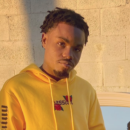
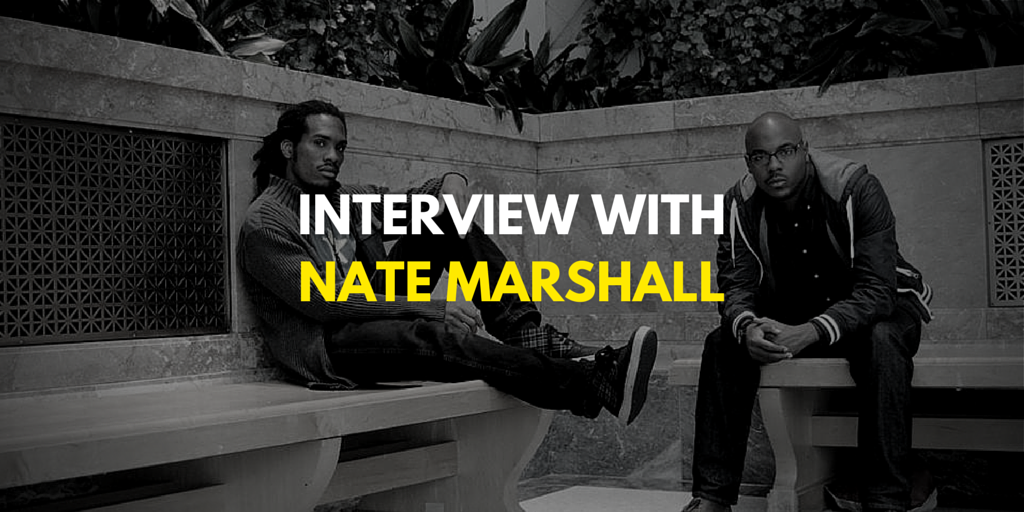
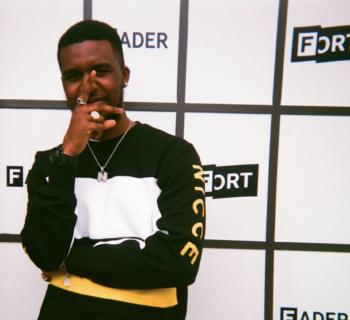


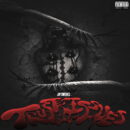
![[Video] "Get 'Em Up" - D. Green](http://upcominghiphop.net/wp-content/uploads/2016/01/Screen-Shot-2016-01-25-at-10.38.39-AM.png)
